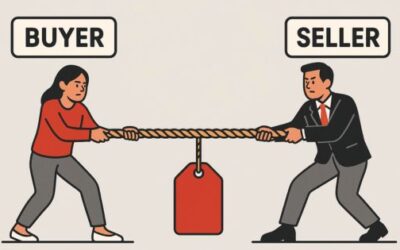There’s no ifs, ands, or buts about it. Sales questions are make or break when you’re on a call with a potential client. There isn’t an expert, trainer, or resource who will argue this. But, it’s never just the question you’re asking. You need to make sure you’re asking the right question in the right way. Sellers tend to struggle with this. More is not always better. Successful sellers understand how to craft and deliver the most impactful questions at the right time.
Sales Questions are an Art Form
Learn to Ask Better Questions
Up leveling your sales skills starts with your question asking abilities. A question is only as good as the information it gathers from the prospect. How well you understand their environment, problems, impacts, and root causes directly impact the quality of the question AND thus, your performance. Knowing this, forming impactful sales questions is a must.
The Four Pillars of Effective Sales Questions
The question you are asking and the information you are gathering are the most important pieces of question development. But, you also need to account for the unspokens. There are 4 pillars that can shape the credibility and trust portrayed in each question. These pillars – tone, timing, type, and objective help to shape the conversation to engage the buyer and generate a positive outcome. Each plays it’s own role in developing questions that resonate, build trust, and uncover the problems facing your buyers.
Tone
The tone of each question can make or break an interaction with a buyer. A question, no matter how well crafted, prepared, or delivered can fall flat if it’s delivered in the wrong tone. Your tone must be aligned to the buyer’s emotions and the context of the conversation. Sensitive topics require a therapist like approach, showing humility, empathy, and openness rather than confident or accusatory.
Timing
It’s not always about what you ask, but when you ask it. The sequence and flow of your questions should take your buyer on a journey. The goal is to gradually build the trust throughout the interaction until both parties are comfortable asking or answering tough questions. You don’t ask someone to marry you on the first date, you shouldn’t lead with sensitive questions. Misjudging the timing can disrupt the flow and make the conversation feel forced and awkward.
Type
The type of question you ask directly influences the type of response you receive. Just like different screwdrivers are designed for different purposed, different questions accomplish different things and get different answers. There’s 4 main types of sales questions: personal, challenging, provoking, and validating. Each serves its own purpose.
Personal Questions: Pretty straight forward. Personal questions are designed to collect personal information about the buyer, how they feel, what’s important to them, etc.
Challenging Questions: Challenging questions are meant to make a buyer defend a position or evaluate their current belief system.
Provoking Questions: Provoking questions are informational questions that offer an alternative to the buyer to ponder or get them to look at something in a different light. They typically begin with “have you considered…” or “what would happen if…”.
Validating Questions: Validating questions clarify a buyer’s statements, beliefs, or position. They make sure you and the buyer are on the same page.
Objective
Every question you ask should have a clear objective. What information are you trying to gather before you ask the question. A question that is misaligned with your goals or the buyer’s role just muddies the water. Be strategic about the information you’re seeking and how each question moves the conversation and the sales process forward.
Hone Your Sales Questioning Skills
Asking great sales questions is a game changing skill that separates the best sellers from the rest of the pack. Take time to practice and master the tone, timing, type, and objective of your questions. It’s worth it.
FAQs
How do I avoid making my sales questions feel / sound like an interrogation?
Focus on your tone and timing. Ensure your tone is empathetic and aligned with the emotions the buyer is exhibiting. In short, read the room. Create a naturally flowing conversation by spacing out the timing a bit. If you’re rushing and peppering a prospect with back to back to back questions, it will feel very true crime documentary like.
What type of question should I start a sales conversation with?
Start with a simple open-ended question: what prompted you to take my call or what is going on that you agreed to meet with me today? This will start the conversation off naturally while also giving you an initial point to explore before you start digging in.
How can I ensure my sales questions are effective?
Where are you trying to go? Take a look at your PIC. Which potential problem would you like to explore first? Align your questions to the problems, impacts, and root causes that your product or service solves and make sure each question serves a purpose in getting the information required.






0 Comments